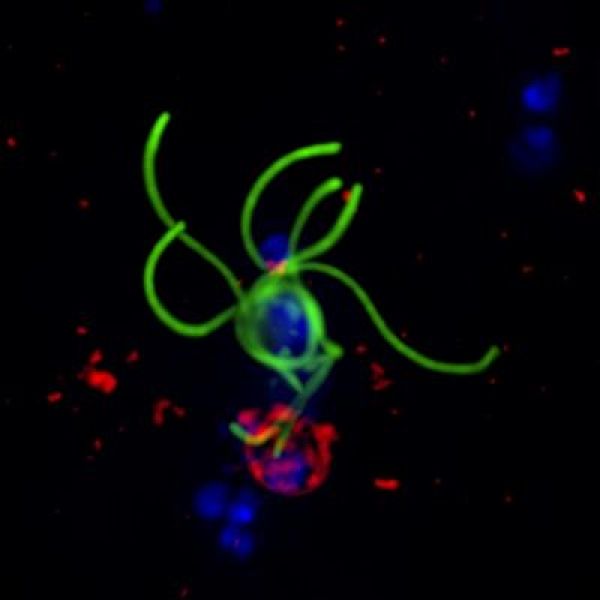Researchers have identified compounds that could prevent malaria parasites from being able to infect mosquitoes, halting the spread of disease.
Preventing transmission of malaria is a key part of efforts to eliminate the disease. A person can be cured of the disease using drugs that wipe out the replicating form of the parasite, but still carry dormant, sexual forms. These are responsible for transferring the parasite to the mosquito when it bites them.
Inside the mosquito, the dormant parasites rapidly mature and then multiply, leaving them ready to infect a new person when the insect feeds again.
Now, a team led by researchers from Imperial College London have identified a number of compounds that prevent the parasite maturing inside the mosquito. The team screened more than 70,000 compounds and identified six compounds that have the potential to be turned into drugs that block disease transmission. Their results are published today in Nature Communications.
Read more at Imperial College London
Image: A male malaria parasite sexual stage becoming active -- a process called exflagellation that happens inside the mosquito stomach. (Credit: Sabrina Yahiya)


